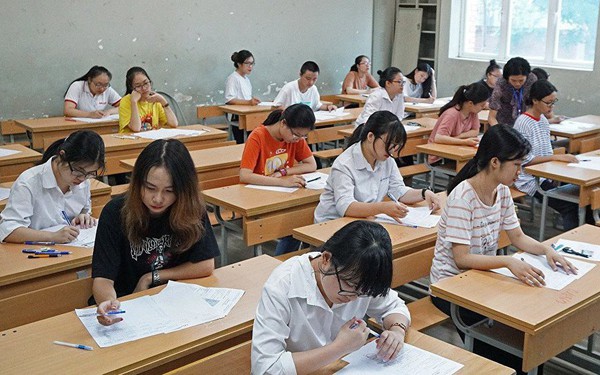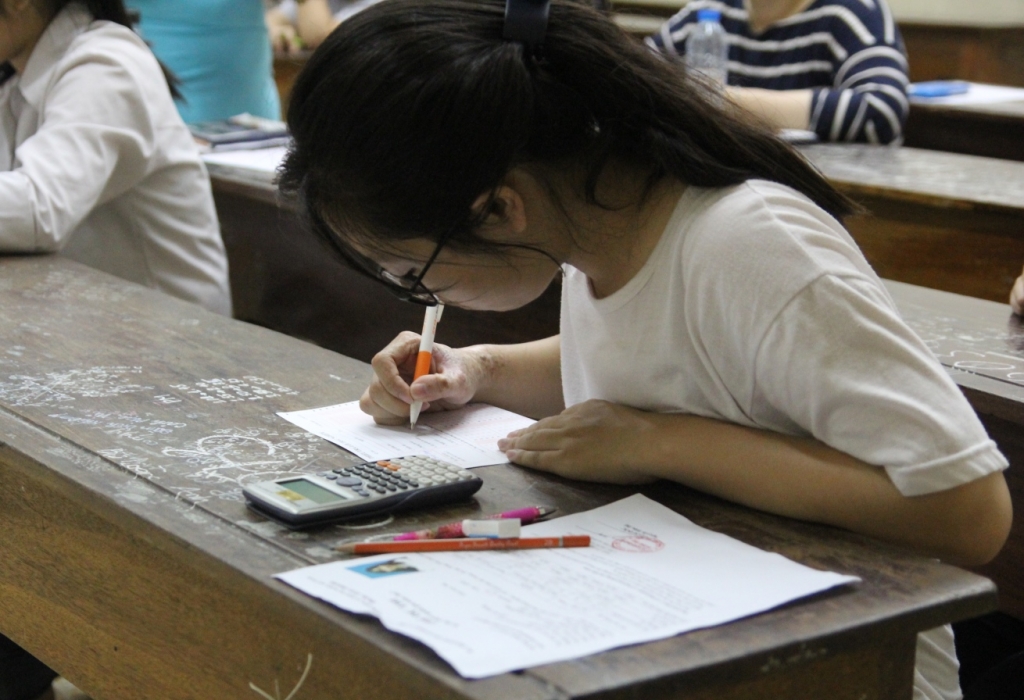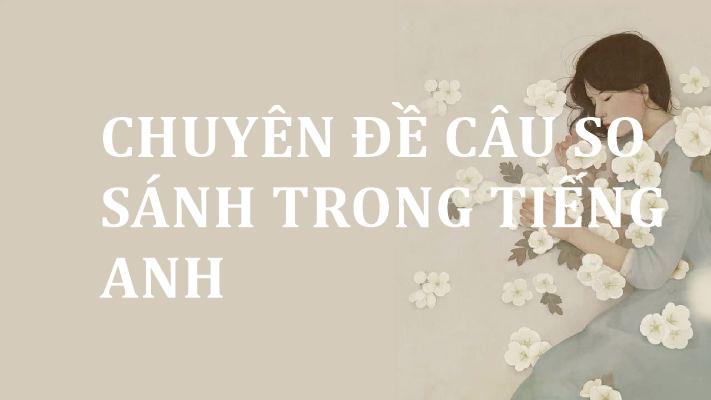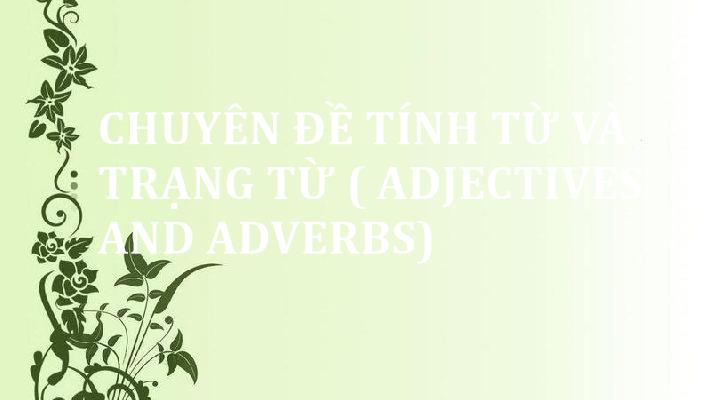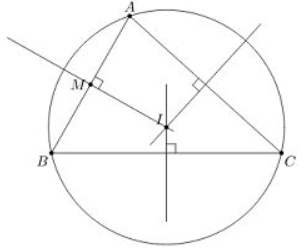THE PRESENT PROGRESSIVE TENSE ( THÌ HIỆN TẠI TIẾP DIỄN)
I. Lý thuyết (Theory)
1. Cách dùng (Uses)
+) diễn tả 1 sự việc , hành động đang xảy ra ngay tại thời điểm nói, thường đi với trạng từ “now, at the moment, at present, right now, just” và các câu mệnh lệnh.
Eg: We are learning English now.
Look! It’s raining.
+) diễn tả 1 dự định trong tương lai gần hoặc 1 hiện tượng chắc chắn sắp xảy ra.
Eg: I am visiting my grandmother this afternoon.
The train is coming in five minutes.
+) diễn tả 1 sự việc bất thường ở hiện tại.
Eg: I often walk to school but today I am cycling to school.
+) diễn tả 1 hành động , sự việc đang xảy ra xung quanh thời điểm nói, không nhất thiết vào chính thời điểm nói (hành động này thường kéo dài như 1 quá trình).
Eg: I’m writing a novel about adventures.
+) diễn tả 1 hành động, 1 thói quen xấu liên tục xảy ra gây khó chịu bực mình cho người khác, thường đi với các từ: “always, forever, constantly, continuously”
Eg: You are always talking in class.
She is forever getting up late.
+) diễn tả ý nói chung chung về 1 hành động đang xảy ra nhưng gắn với thời điểm hoặc tình huống cụ thể.
Eg: She looks beautiful when she is smiling.
Don’t disturb me when I am working.
2. Cấu trúc (Forms)
(+) S+is/am/are + Ving
(-) S+ isn’t/ am not/ aren’t + Ving
(?) Is/ am/are +S+Ving?
(?) Wh- +is/am/are +S+Ving?
Eg1: (+) He is cooking at the moment.
(-) He isn’t cooking at the moment.
(?) Is he cooking at the moment?
(?) What is he doing at the moment?
Eg2: (+) My father is working in the garden.
(-) My father isn’t working in the garden.
(?) Is your father working in the garden?
(?) Where is your father working?
3. Quy tắc thêm “ing”
-) thông thường chỉ việc thêm ‘ing’ sau động từ: learning, cooking, speaking...
-) tận cùng là “y” +ing : study => studying
play => playing
-) tận cùng là “e” câm thì bỏ “e” thêm “ing”
Eg: write => writing make => making
have => having take => taking
drive=> driving
Trừ: age => ageing
dye => dyeing
singe => singeing
-) nếu từ có 1 âm tiết hoặc 2 âm tiết nhưng trọng âm rơi vào âm tiết thứ 2 mà trước phụ âm cuối chỉ có 1 nguyên âm thì gấp đôi phụ âm cuối rồi thêm “ing”
sit => sitting control => controlling
run => running occur => occurring
swim => swimming admit => admitting
Đặc biệt: travel => traveling/ travelling
-) tận cùng là “ie” => y +ing
die => dying
lie => lying
-) tận cùng là "w" => không gấp đôi
Eg : draw => drawing
4. Một số động từ không thường dùng ở các thì tiếp diễn
- các động từ này chỉ tình cảm, cảm xúc, suy nghĩ, thuộc về tinh thần, chỉ sở hữu, chỉ liệt kê miêu tả, chỉ bao gồm:
astonish, appear, believe, belong, consist, contain, concern, depend, deserve, doubt, fit, find, guess, hate, impress, imagine, include, know, like, love, lack, mean, matter, need, owe, prefer, please, possess, realize, remember, resemble, satisfy, surprise, suppose, sound, seem, understand, want, wish.
5. Một số động từ có thể dùng ở thì tiếp diễn nhưng với nghĩa khác
a) feel
• feel + adj eg: I’m feeling tired/ I feel tired.
=> dùng tiếp diễn được
• feel + mệnh đề: feel + sb/st + adj
⇒ không dùng tiếp diễn
eg: I feel it difficult.
I feel he isn’t friendly.
b) smell
eg: It smells bad. ( Nó có mùi khó chịu)
I‘m smelling the flower. ( Tôi đang ngửi hoa)
c) taste
eg: This apple tastes sweet. ( Quả táo này có vị ngọt)
I’m tasting this soup.( Tôi đang nếm món súp)
d) look
eg: She looks funny. ( Cô ấy trông buồn cười → miêu tả)
He is looking at my bag. ( Anh ta đang nhìn túi của tôi)
e) think
eg: I think that he isn’t coming tonight.
( Tôi nghĩ tối nay anh ấy không đến → bày tỏ quan điểm,suy nghĩ)
What are you thinking about? ( Bạn đang nghĩ về điều gì vậy?)
→ I am thinking about the next holiday. ( Tôi đang nghĩ về kì nghỉ tới)
f) see
eg: Yes, I see. ( Tôi hiểu)
She is seeing her son tomorrow. (Cô ấy sẽ gặp con trai vào ngày mai)
g) hear
eg: I hear the workers are going on strike. (Tôi nghe rằng công nhân sẽ đình công)
The court is hearing evidence. ( Tòa án đang lắng nghe chứng cứ)
h) weigh
eg: I weigh 40 kilos. ( Tôi nặng 40kg → miêu tả cân nặng)
She is weighing herself. ( Cô ấy đang cân → hành động cân)
i) measure
eg: I measure 1,7 meters tall. ( Tôi cao 1,7 m → miêu tả)
They are measuring the road. ( Họ đang đo đường → đo đạc)
j) expect
eg: I expect that he isn’t coming here. ( Tôi mong là anh ta sẽ không đến đây)
She is expecting his coming. (Cô ấy đang mong anh ta đến)
II. Bài tập
Bài 1: Chia động từ trong ngoặc ở thì hiện tại tiếp diễn
1. She ( not work), she ( swim) in the river.
2. Why Ann ( not wear) her new dress?
3. What Yibo ( do) now? He ( clean) his shoes.
4. It is a lovely day. The sun ( shine) and the birds ( sing).
5. She always ( lose) her glasses and ( ask) me to look for them.
6. The children are very quiet. Go and see what they ( do)
7. Someone ( knock) at the door. Shall I answer it?
=> I ( come) in a minute. I just ( wash) my hands.
8. What you ( read) now? - I (read) Crime and Punishment.
9. Ann usually does the shopping, but I (do) it today as she isn’t well.
10. Where is Daniel? - He ( lie) under the car.
Bài 2: Chọn đáp án đúng
1. She ____ . Is something wrong?
A. cries B. is crying
C. cry D. crying
2. Her brother ____ in Canada at present.
A. working B. works
C. is working D. work
3. It ____ me that they can't sell their flat.
A. surprises B. is surprising
C. surprising D. surprise
4. I have just started English course. I ___ English grammar.
A. study B. studying
C. am studying D. studied
5. In the morning I ___ little time, so I ___ a shower in the evening.
A. have / take B. am having / am taking
C. have / am taking D. am having / take
6. Hurry up, Jane! We all ____ for you.
A. wait B. are waiting
C. waiting D. are waited
7. Turn off the gas. Don't you see the kettle __ ?
A. boil B. boils
C. is boiling D. boiled
8. Mercury ___ at 357,23 degrees Centigrade.
A. boils B. is boiling
C. boiling D. boiled
9. The children are still ill but they ___ better gradually.
A. get B. getting
C. are get D. are getting
10. Don't bother her. She ___ her French lesson. She always ___ it in the morning.
A. takes / is taking B. is taking / takes
C. takes / takes D. is taking / is taking
Đáp án:
Bài 1:
1. She ( not work), she ( swim) in the river.
isn't working is swimming
2. Why Ann ( not wear) her new dress?
isn't Ann wearing
3. What Yibo ( do) now? He ( clean) his shoes.
is Yibo doing is cleaning
4. It is a lovely day. The sun ( shine) and the birds ( sing).
is shining are singing
5. She always ( lose) her glasses and ( ask) me to look for them.
is always losing asking
6. The children are very quiet. Go and see what they ( do).
are doing
7. Someone ( knock) at the door. Shall I answer it?
is knocking
=> I ( come) in a minute. I just ( wash) my hands.
am coming am just washing
8. What you ( read) now? - I (read) Crime and Punishment.
are you reading am reading
9. Ann usually does the shopping, but I (do) it today as she isn’t well.
am doing
10. Where is Daniel? - He ( lie) under the car.
is lying
Bài 2:
1. B 2. C
3. A 4. C
5. A 6. B
7. C 8. A
9. D 10. B

